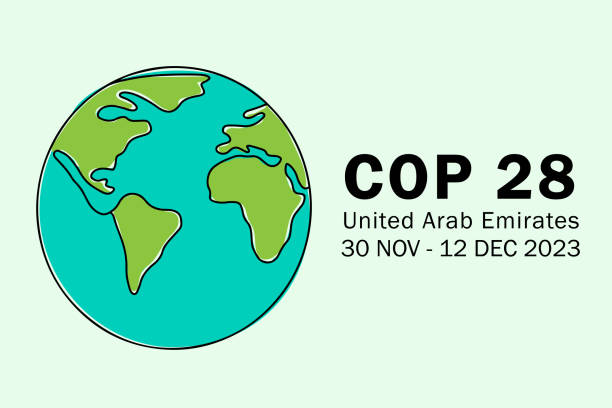Dubai/New York, November 30 – The UN climate summit in the United Arab Emirates opened with a “historic” agreement to help poor and vulnerable countries pay the cost of losses and damages caused by extreme weather.
“I congratulate parties for this historic decision,” said UAR Sultan al-Jaber, who presides over the summit known as COP28 after it formally launched the Loss and Damage Fund on its first day of work. “This sends a positive signal of momentum to the world and to our work.”
The United Nations said it has a roadmap to limit the rise in global temperature to 1.5 degrees Celsius and it urges leaders attending the opening of the climate summit in Dubai to fire the “starting gun” on the race to keep that limit alive.
UN Secretary-General Antonio asked the summit – known as COP28 – to set “clear expectations” for the next climate action plans, to commit to the partnerships and finance to make them possible and to triple renewables and double energy efficiency.
He also asked the attendees to “commit to phase out fossil fuels, with a clear time frame aligned to the 1.5-degree limit. We must also go further and faster in protecting people from climate chaos.”
He said an early warning system launched by the UN last year should begin working to protect every person on earth by 2027 and every vulnerable developing country should have the support they need to develop and implement adaptation investment plan by 2025.
“Leaders must get the Loss and Damage Fund off to a flying start, with generous,
early contributions,” he said. “Developed countries must honor the promise to deliver $100 billion a year in climate finance, and they must present a clear plan showing how they will make good on their commitment to double adaptation finance by 2025, as a first step to ensuring at least half of all climate finance goes to adaptation. Today’s report shows we’re in deep trouble.”
“Leaders must get us out of it – starting at COP28,” Guterres said.
Guterres, who visited Antarctica in early November to see for himself how fast ice is melting, said both Antarctica and Greenland are melting well over three times faster than they were in the early 1990s as the Southern ocean is slowly heating up.
“We need a global commitment to triple renewables, double energy efficiency, and bring clean power to all, by 2030,” Guterres told reporters at UN Headquarters in New York. “We need a clear and credible commitment to phase out fossil fuels on a timeframe that aligns with the 1.5-degree limit.”
“And we need climate justice – setting the world up for a huge increase in investment in adaptation and loss and damage to protect people from climate extremes. Antarctica is crying out for action. It is profoundly shocking to stand on the ice of Antarctica and hear directly from scientists how fast the ice is disappearing.”
He said new figures provided this September by scientists showed that Antarctic sea ice hit an all-time low and was 1.5 million square kms smaller than the average for the time of year – an area roughly equal to the combined size of Portugal, Spain, France and Germany. Melting sea ice rises sea levels and endangers lives and livelihoods in coastal communities across the globe.
In addition, floods and saltwater intrusion imperil crops and drinking water – threatening food and water security.
Guterres said the cause of all this destruction came from fossil fuel pollution coating the earth and heating the planet. “Without changing course, we’re heading towards a calamitous three-degree Celsius temperature rise by the end of the century,” he said.
The 28th Conference of the Parties (COP28)
The UN climate summit – from November 30 to December 12 – is hosted this year by the United Arab Emirates, the world’s fifth largest oil producer. It will be attended by government representatives, many of them heads of state and government, from some 200 countries. Business leaders, climate activists, scientists and civil society organizations are expected also to attend. The summit is expected to draft a plan to speed up the transition from fossil fuels to renewable energy sources among a host of climate issues.
The UN expects three significant results from COP28. The first one known as “global stocktake” which will be the first assessment of whether countries have carried out climate action to limit the rise in temperatures to 1.5 degrees. The second is a final agreement on the Loss and Damage fund that pays for climate-related damages suffered by poor ad vulnerable countries and the third one is whether the summit would agree to replace fossil fuels with clean energy such as wind and solar power.
The UN website on climate action said COP28 is a “pivotal opportunity to correct course and accelerate action to tackle the climate crisis. COP28 is where the world will take stock of progress on the Paris Agreement – the landmark climate treaty concluded in 2015 – and chart a course of action to dramatically reduce emissions and protect lives and livelihoods.”
“The science is clear: to preserve a livable climate, the production of coal, oil, and gas must rapidly decline, and global renewable power capacity – including wind, solar, hydro and geothermal energy – needs to triple by 2030. At the same time, financing for adaptation and investments in climate resilience need a quantum leap.” (By J. Tuyet Nguyen)
United Nations correspondent journalists – United Nations correspondent journalists – United Nations correspondent journalists – United Nations journalism articles – United Nations journalism articles – United Nations journalism articles – United Nations News – United Nations News – United Nations News

